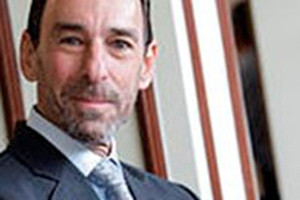Freedom of the press, a paradise lost?

By: José Azel - 22/05/2023
Share:
John Milton, poet and polemical man of letters, is best known for his 1667 poem Paradise Lost. But it is Milton’s Areopagitica (1644) that stands out as history’s most heartfelt and influential defense of freedom of speech and the press. Milton’s influence is evident in the U.S. Constitution, and Supreme Court Justices have cited Areopagitica in several decisions supporting free speech.
Milton was ahead of his time in developing the arguments that would later be used by free press advocates. In Areopagitica he recognized that threatening censorships prior to publication would have an unsettling effect on free expression and would interfere with the pursuit of truth. He argued forcefully against an ordinance which required authors to have a government approved license prior to publishing their works. He called “the liberty to know, to utter, and to argue freely according to conscience, the liberty above all liberties.”
Fast forward nearly 400 years to the state of freedom of the press in our times. Yearly, The World Freedom Index, compiled by Reporters Without Borders, evaluates the state of journalism in 180 territories. Its 2019 report shows that only 8 percent of the countries evaluated can be classified as having a “good” press freedom situation, followed by 16 percent “satisfactory”, 37 percent “problematic” , 29 percent “difficult” , and 11 percent in a “very serious situation.” Only 24 percent of the countries qualify as good or satisfactory –a decline of two percentage points from 2018.
Norway, Sweden, The Netherlands, Finland, and Switzerland, take the top five spots, with the United States falling three places to 48th place. In the Americas, Jamaica rates highest, and Cuba rates lowest at number 169.
Another report, The Freedom of the Press report compiled by Freedom House, reveals a similar pattern. Only 13 percent of the world’s population enjoys a free press, and global press freedom had declined to its lowest point in 13 years.
It is no surprise that authoritarian-totalitarian regimes like Russia, China, North Korea, Cuba, and others continue having complete, or near complete, control over their domestic media. What is most troubling is that politicians in democratic countries are shaping news coverage by undermining traditional media outlets. Common techniques include exerting influence over public broadcasters and raising the profile of government friendly private media outlets.
For example, Viktor Orban’s government in Hungary, and Aleksandar Vucic’s administration in Serbia consolidated media ownership in the hands of their cronies. In Hungary, nearly 80 percent of the media are owned by allies of the government. This ensures media support for the government and the smear of perceived opponents.
In the U.S., President Trump’s war with the media is well known. Here are the attitudes of other democratically elected leaders cited by Freedom House:
Recep Tayyip Erdogan, President of Turkey: “Know your place…shameless militant women disguised as journalists.”
Jacob Zuma, President of South Africa: “I have argued with [the media] that they were never elected, we were elected, and we can claim that we represent the people.”
Roberto Fico, Prime Minister of Slovakia: Some of you [journalists] are dirty, anti-Slovak prostitutes.”
Jaroslaw Kaczynski, who served as Prime Minister of Poland, claimed that Poland’s largest newspaper was “against the very notion of the nation.”
Benjamin Netanyahu, Prime Minister of Israel, has used his Facebook page to attack high-profile investigative journalists and has been accused of colluding with media owners to shape favorable coverage.
Philippines President Rodrigo Duarte has voiced insults and death threats against journalists.
This is not a list of the usual suspects when it comes to press restrictions. These are democratically elected leaders that have concluded that their citizens are not capable of using reason to distinguish good from bad journalism.
An essential belief of democracy is that when people argue openly with each other, good arguments will prevail. As John Milton argued, we must have unlimited access to the ideas of our fellow citizens in “a free and open encounter.” To remain viable, democracies must promote a marketplace of ideas, ensuring that freedom of the press does not become democracies’ paradise lost.
«The opinions published herein are the sole responsibility of its author».